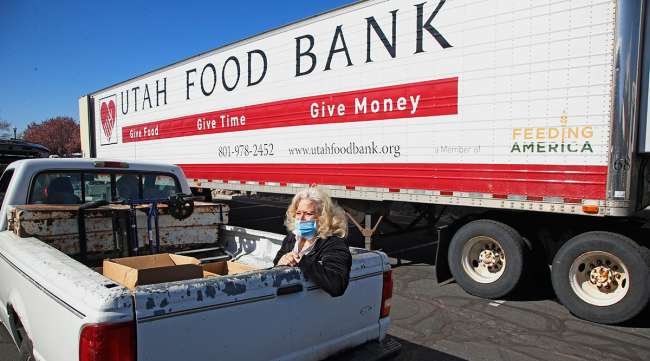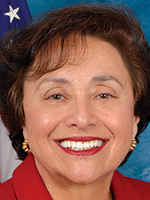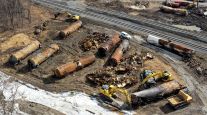Senior Reporter
House Bill Directs Fed to Cover COVID-19 FEMA Costs

[Ensure you have all the info you need in these unprecedented times. Subscribe now.]
Legislation that would ensure the federal government cover the costs of COVID-19-related Federal Emergency Management Agency assistance under major disaster declarations was introduced by top House Democrats on May 1.
Specifically, the COVID-19 Cost Share Adjustment Relief Act of 2020 would remove financial obligations from state, municipal, tribal and territorial governments under declarations pursuant to the Stafford Disaster Relief and Emergency Assistance Act. The bill’s sponsors explained these nonfederal governments typically take on 25% of such costs.
The pandemic has prompted states to seek various degrees of federal assistance for relief efforts.

Lowey
“As a nation, we have lost more than 63,000 lives before their time to COVID-19. Our state and local governments are in dire need of additional resources and support to weather this crisis. The toll of this pandemic is unprecedented, but adjusting the FEMA nonfederal cost share is not,” said Appropriations Committee Chairwoman Nita Lowey (D-N.Y.). “Past presidents have invoked this authority in times of crisis. Despite continued urging from Congress, President [Donald] Trump has failed to do so, and states quickly expended their public health and emergency management resources.”
Added Transportation and Infrastructure Committee Chairman Peter DeFazio (D-Ore.), “Governments across the nation are seeing their public health and emergency management capabilities quickly exceeded as this pandemic has spread, while at the same time watching their tax bases wither as Americans do the right thing by heeding stay-at-home orders to ‘flatten the curve’ and slow the spread of this deadly coronavirus.”
Rep. Bennie Thompson (D-Miss.), chairman of the Homeland Security Committee, also a co-sponsor, noted colleagues on Capitol Hill have been urging the president to direct FEMA to cover such costs.
“The magnitude of the coronavirus pandemic facing our country, coupled with the current economic retraction facing states and local governments, demands that the federal government pay a greater cost share for emergency disaster response,” Thompson said. “His failure to act means Congress should immediately provide this relief and assurance for our state and local partners.”
Other sponsors include Reps. Dina Titus of Nevada, Lucille Roybal-Allard of California, and Donald Payne of New Jersey. The lawmakers lead panels with jurisdiction over the agency and other emergency response entities.
FEMA on May 4 announced $200 million in supplemental funding allocations to local jurisdictions as a way to assist organizations with providing resources for low-income residents and homeless individuals. The funding was directed via the federal Coronavirus Aid, Relief and Economic Security, or CARES Act. The agency also approved the Crisis Counseling Assistance and Training program for 30 states and the nation’s capital. The program assists state-provided crisis counseling services to individuals dealing with anxiety as a result of the pandemic.
And this month, FEMA provided Iowa with $78 million to assist officials with the reimbursement of eligible expenses for COVID-19-related emergency measures.
“We are pleased to provide this significant grant to the state of Iowa to help them manage the financial demands that they’re experiencing as a result of COVID-19,” Paul Taylor, FEMA Region 7 administrator, said May 7. “We will continue to work closely with them as our shared efforts to respond to this pandemic continue.”
FEMA leaders participate on a task force with the Department of Health and Human Services designed to increase nationwide testing of COVID-19. The group reviews nationwide needs regarding equipment, supplies, and resources aimed at ensuring a safe reopening for merchants and community institutions. The task force has assisted in identifying testing capacity, as well as working with diagnostic test developers and manufacturers.
Want more news? Listen to today's daily briefing:




